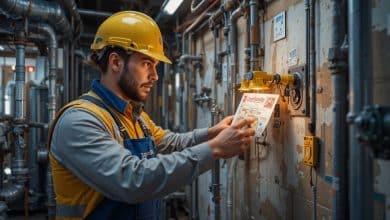General Maintenance Jobs in Italy with Visa Sponsorship: Complete Guide
Italy’s growing demand for skilled and semi-skilled workers opens doors for international candidates seeking stable employment abroad.
The country’s hospitality, construction, and service industries consistently need professionals to fill essential roles. For those without advanced degrees, these positions offer a practical entry point into Europe’s workforce while providing legal pathways for long-term residency.
Many employers now support foreign workers through official work permits and employment contracts. This structured approach simplifies the process of securing legal status and integrating into local communities. Workers gain daily opportunities to practice Italian language skills and engage with regional traditions, blending career growth with cultural immersion.
This guide outlines how to navigate Italy’s employment landscape, from identifying reliable job openings to completing visa requirements. It highlights competitive salaries, skill development programs, and the advantages of gaining experience in a thriving European economy. With consistent seasonal demand and clear immigration frameworks, these roles provide both short-term stability and long-term professional possibilities.
Overview of the Guide to Maintenance and Service Roles in Italy
The Mediterranean nation’s need for hands-on workers supports global talent seeking footholds in diverse service roles. From historic hotels to modern apartment complexes, employers seek candidates for practical positions requiring minimal formal training. Seasonal peaks in tourism drive demand for workers who can adapt quickly to fast-paced environments.
- Hospitality: Room upkeep and facility repairs at resorts
- Construction: Site preparation and equipment handling
- Residential care: Property maintenance and system checks
Coastal regions like Sicily and urban hubs such as Milan showcase particularly high demand during summer months. A hotel manager in Rome notes:
“We value workers who combine technical know-how with cultural adaptability – these skills often outweigh academic credentials.”
Applicants can choose between temporary contracts for seasonal work or year-round positions in city-based operations. Many roles provide hands-on learning through shadowing experienced staff, making them ideal for career switchers. Understanding regional employment trends helps candidates target locations matching their professional goals.
Italian Employment Landscape in the Maintenance Industry
Regional economic patterns shape Italy’s labor needs, creating distinct work environments across its cities and coastlines. Northern industrial zones like Lombardy and Veneto host year-round positions in facility upkeep and equipment servicing. Meanwhile, southern regions such as Campania see seasonal spikes tied to tourism, with hotels and resorts needing extra staff for peak months.
- Hospitality venues requiring daily cleaning crews
- Construction firms managing renovation projects
- Property management companies overseeing residential complexes
A maintenance supervisor in Naples explains:
“Our teams value workers who understand both modern systems and historic building preservation – this dual focus keeps our cities functional and beautiful.”
Urban centers like Rome and Florence offer specialized roles in heritage site conservation, blending traditional techniques with new technologies. Employers increasingly provide language courses and housing assistance to attract international talent. This support helps workers adapt while filling critical skill gaps in local markets.
Coastal areas present temporary opportunities from April to October, ideal for those seeking short-term contracts. In contrast, manufacturing hubs near Milan provide stable careers with advancement paths into supervisory roles. Understanding these geographic differences helps applicants align their skills with regional demands.
General Maintenance Jobs in Italy with Visa Sponsorship
Securing employment through sponsored roles provides foreign workers a structured route to legal residency and career growth. These positions span multiple industries, from hospitality to residential services, offering practical entry points into European labor markets.
- Restaurant equipment servicing
- Apartment complex upkeep
- Tourism facility repairs
Companies frequently prioritize international applicants due to staffing gaps during peak seasons. A hotel operator in Venice states:
“Reliable workers who adapt to our historic properties’ unique needs become invaluable team members.”
Employment packages often feature language classes and housing support, easing cultural transitions. Many contracts align with Italy’s annual work permit quotas, simplifying authorization processes for both parties.
Roles typically require basic technical skills but provide training in local safety standards and heritage preservation techniques. Successful candidates can transition from temporary to permanent status after demonstrating consistent performance.
This system benefits workers seeking EU footholds while addressing critical service gaps in high-traffic areas. Applicants gain access to social security benefits and potential pathways to citizenship through continuous legal employment.
Navigating the Visa and Work Permit Process
Foreign workers aiming to join Italy’s workforce must master a structured authorization framework. Success hinges on employer collaboration and adherence to annual quota systems. Two critical components govern this process: the Subordinate Work Visa and the Decreto Flussi program.
Subordinate Work Visa Requirements
The Lavoro Subordinato visa serves seasonal and long-term roles. Applicants need a pre-approved job offer from an Italian employer. Required documents include notarized contracts, proof of housing arrangements, and financial stability evidence.
Employers must secure a Nulla Osta authorization before candidates apply. This approval confirms the position couldn’t be filled locally. Workers then submit visa applications through Italian consulates in their home countries.
Decreto Flussi Application Process
Italy’s Decreto Flussi system allocates limited slots for non-EU workers annually. Employers request quotas early to secure positions before caps are reached. Applications typically open in spring, with deadlines varying by industry.
A Milan-based immigration lawyer advises:
“Submitting paperwork within the first 30 days maximizes approval chances – delays often result in missed opportunities.”
Successful candidates receive entry permits tied to specific jobs and regions. Renewals require proof of continuous employment and tax compliance.
Application Process and Documentation Requirements
Navigating Italy’s application process requires careful preparation and collaboration between candidates and employers. Securing a signed employment contract from an authorized company is the first critical step. This document serves as proof of job eligibility and outlines terms like salary, duration, and responsibilities.
- Police clearance certificates from the applicant’s home country
- Educational diplomas or vocational training records
- Medical certificates confirming fitness for work
Employers and applicants must coordinate to meet consular deadlines, particularly for the Decreto Flussi quota system. A Bologna-based immigration advisor notes:
“Missing document deadlines can push applications into next year’s cycle – early preparation is non-negotiable.”
After arriving in Italy, workers must visit local immigration offices within eight days to apply for a Residence Permit. This step converts temporary visas into renewable work authorizations. Delays risk fines or legal complications affecting employment status.
Accurate paperwork remains vital throughout the process. Errors in translation or missing stamps on official documents often cause avoidable setbacks. Candidates should verify requirements with consulates and employers to ensure smooth transitions into their new roles.
Essential Skills and Training Requirements for Maintenance Jobs
Success in maintenance roles hinges on a blend of hands-on abilities and workplace adaptability. While formal education isn’t mandatory, employers prioritize candidates who demonstrate physical stamina and problem-solving initiative. Basic Italian language knowledge improves communication with teams and residents, though many companies offer introductory courses to bridge gaps.
On-the-Job Training Opportunities
Most positions include structured learning programs covering safety protocols and equipment handling. A supervisor in Tuscany notes:
“We teach workers how to maintain centuries-old plumbing systems alongside modern HVAC units – adaptability matters more than prior experience.”
Training often combines shadowing senior staff with practical workshops. This approach helps newcomers master region-specific techniques while meeting efficiency standards.
Certification and Practical Experience
While entry-level roles require minimal credentials, specialized certifications boost earning potential. Electrical systems and plumbing licenses demonstrate advanced skills, making candidates stand out. Many vocational schools offer accelerated courses tailored to Italy’s building codes.
Physical endurance remains critical across all positions. Workers regularly lift heavy objects, climb ladders, and perform repetitive motions. Those with construction or repair backgrounds often transition smoothly into supervisory roles after proving their capabilities.
Career Growth and Advancement in Italy’s Maintenance Sector
Building expertise in practical roles often leads to rewarding long-term career paths. Workers who demonstrate reliability and learn local systems can transition from basic tasks to leadership positions within 12–24 months. Many employers prioritize internal promotions, offering team coordinator roles or specialized technical training to dedicated staff.
Progression opportunities vary across industries. Hospitality workers might advance to facility management, while construction professionals could oversee heritage restoration projects. A Milan-based supervisor shares:
“We’ve promoted three international team members this year alone – initiative and problem-solving matter more than formal qualifications.”
Language proficiency and cultural awareness accelerate growth. Employers frequently sponsor Italian courses, enabling workers to handle client interactions and safety documentation. These skills open doors to higher-paying roles in equipment maintenance or quality control.
The sector’s diversity allows professionals to shift between residential, commercial, and tourism-focused work. Some eventually launch independent contracting businesses, leveraging networks built during their employment. Continuous learning through vocational certifications further enhances earning potential and marketability.
Long-term prospects extend beyond job titles. Many gain eligibility for permanent residency after five years of steady employment. Others transition into training roles, shaping the next generation of technicians while securing their place in Italy’s workforce.
Understanding Job Responsibilities and Equipment Needs
Workers in service roles handle diverse tasks that keep businesses running smoothly. Daily duties vary by industry but share a focus on efficiency and safety standards. Hospitality staff might refresh guest rooms, manage laundry services, or inspect common areas. Construction teams often assist with material handling and site cleanup while learning equipment basics.
Food service roles demand precision in kitchen sanitation and dishwashing. Staff frequently support chefs with prep work and ensure dining areas meet health codes. A supervisor in Florence notes:
“Mastering these tasks requires attention to detail – properly sanitized surfaces and organized tools prevent operational delays.”
Equipment needs range from simple scrubbers to industrial floor polishers. Employers typically provide tools like pressure washers, safety harnesses, and specialized cleaning agents. Training programs teach proper operating techniques to minimize accidents and extend machinery lifespans.
Adaptability proves crucial across sectors. Workers might switch between repairing HVAC units and restocking supplies within a single shift. Those who master multiple maintenance tasks often advance to quality control or team leadership roles faster.
Salary and Compensation Insights for Maintenance Roles
Earning potential varies across maintenance specialties, with construction and factory workers averaging €1,400-€1,460 monthly. Cleaning and housekeeping roles typically offer €1,200-€1,250. These figures reflect base pay before overtime or bonuses.
Northern industrial hubs like Milan pay 15-20% more than southern regions. However, lower living costs in areas like Sicily often balance reduced wages. A hospitality manager in Sardinia explains:
“Workers who target seasonal peaks can earn 30% higher hourly rates from June to August.”
Compensation packages frequently include:
- Housing allowances or employer-provided apartments
- Meal subsidies for shift workers
- Transportation passes for urban commutes
Full-time positions usually guarantee health coverage and 20+ paid vacation days annually. Many employers add language training stipends to help international staff communicate effectively.
Strategic workers maximize earnings by combining summer tourism jobs with winter roles in manufacturing centers. This approach leverages seasonal demand spikes while maintaining year-round income streams. Performance-based bonuses and equipment certifications further boost long-term earning potential.
Eligibility Criteria and Health Requirements for International Applicants
Applicants seeking roles in facility management must meet specific health standards. Medical checks are mandatory for positions involving food safety or caregiving. These exams ensure compliance with public health regulations and workplace safety protocols.
Candidates must be at least 18 years old, though no maximum age applies. Physical assessments may evaluate stamina for tasks requiring lifting or prolonged activity. Employers prioritize practical abilities over academic credentials, making these roles accessible without formal degrees.
Background verification processes require clean criminal records from applicants’ home countries. This step confirms reliability for positions granting access to private properties or sensitive areas. Most opportunities focus on hands-on experience rather than education achievements.
Upon employment, workers enroll in Italy’s national healthcare system. Coverage includes preventive care, injury protection, and access to medical services throughout their contracts. This benefit supports both immediate needs and long-term well-being in physically demanding roles.
For more information, explore the official visa website mentioned in this article:
You will be redirected to another website
FAQ
What types of maintenance roles typically offer visa sponsorship in Italy?
Employers in sectors like hospitality, manufacturing, and property management often sponsor visas for technicians, facility managers, and equipment repair specialists. These positions require hands-on experience and familiarity with industry-standard tools.
Are language skills mandatory for securing maintenance employment?
While basic Italian proficiency is preferred for customer interactions, some multinational companies accept English speakers. Technical vocabulary related to equipment and safety protocols remains essential regardless of language.
How does the Decreto Flussi program impact visa applications?
The annual Decreto Flussi quota system determines available work permits. Applicants must submit proof of employment offers during designated windows, typically between January and March, to qualify under this program.
What certifications strengthen a maintenance job application?
Certifications like OSHA-equivalent safety training, HVAC licensing, or electrical system credentials improve candidacy. Employers also value apprenticeships completed through recognized vocational programs.
Do these positions require a valid driver’s license?
Many mobile service roles demand a valid EU driver’s license for transporting tools or reaching multiple sites. Employers often specify this requirement in job postings involving fieldwork.
What health checks are required for work authorization?
Applicants must provide medical certificates confirming fitness for physical tasks. Some employers require additional screenings for roles involving hazardous materials or heavy machinery operation.
Can spouses of visa holders seek employment in Italy?
Family reunification visas allow spouses to apply for work permits after the primary visa holder secures residency. Processing times vary by region and documentation completeness.
How do salary packages compare across Italian regions?
Northern industrial hubs like Lombardy offer 15-20% higher wages than southern regions. Compensation often includes housing allowances or transit passes for roles requiring frequent travel.
Published on: 25 de August de 2025







